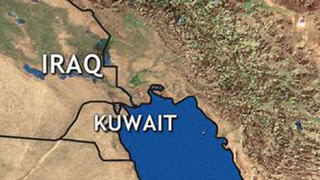The United Nations Gulf War compensation fund agreed on Thursday to defer Iraq’s requirement to deposit five percent of its oil revenues for a year due to its budgetary difficulties.
 The United Nations Gulf War compensation fund agreed on Thursday to defer Iraq's requirement to deposit five percent of its oil revenues for a year due to its budgetary difficulties, a senior U.N. official said.
The United Nations Gulf War compensation fund agreed on Thursday to defer Iraq's requirement to deposit five percent of its oil revenues for a year due to its budgetary difficulties, a senior U.N. official said.
Major powers on the fund's ruling body took the decision by consensus as Iraq's economy is being battered by both low oil prices and war with militants of the so-called 'Islamic State of Iraq and the Levant' (ISIL).
"The Governing Council adopted a decision agreeing to a postponement of Iraq's requirement to deposit five percent of oil proceeds until 1 January, 2016," Leah Kraft, legal officer of the U.N. Compensation Commission (UNCC), told Reuters.
Speaking after the closed-door session in Geneva, she added: "The Council expressed its solidarity with Iraq and wanted to be as helpful as possible."
Iraq this week requested a one-year deferral of a $4.6 billion reparations payment for destroying Kuwait's oil facilities during its 1990-91 occupation.
Earlier on Thursday, state news agency KUNA reported that Kuwait said it accepted the Iraqi request related to reparations imposed by the U.N. Security Council over its invasion.
The UNCC's Governing Council emphasized to Iraq's delegation "the importance of paying the outstanding compensation in full and in a timely manner", Kraft said.
Khaled Ahmed Al-Mudhaf, chairman of Kuwait compensation authority, led the emirate's delegation. Iraq's delegation was headed by Mohammad Bidan, a senior foreign ministry official.
Iraq has been paying funds regularly into the Geneva-based fund overseeing compensation for looting and damage inflicted during Saddam Hussein's seven-month occupation of Kuwait, which was ended by a multinational military operation.
But with its economy set to shrink for the first time since the 2003 U.S.-led invasion toppled Saddam and ended more than a decade of sanctions, Iraq can ill afford to divert a large chunk of the 2015 budget to make that last payment due next year.
The last, and largest, outstanding compensation claim for $4.6 billion is from Kuwait for damage to its oil facilities.
More than 700 Kuwaiti oil wells were set on fire by Iraqi troops retreating from the U.S.-led operation Desert Storm to recapture it in January 1991. Some burned for 10 months.
Nearly all of Iraq's $52.4 billion reparations bill has been paid, with more than a million claimants - individuals, companies and governments - receiving compensation.